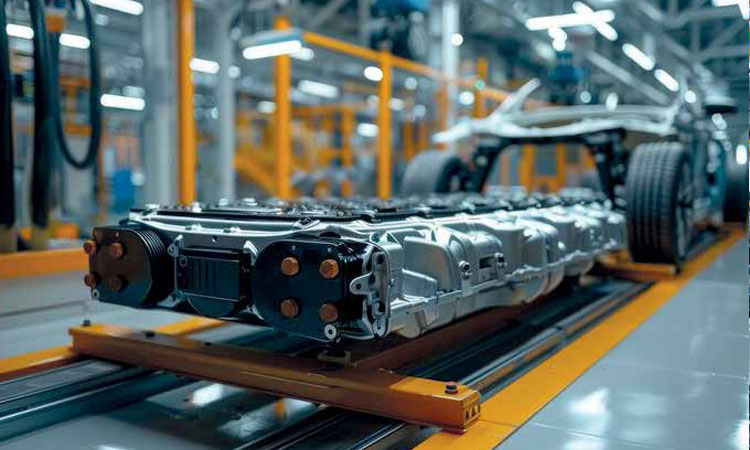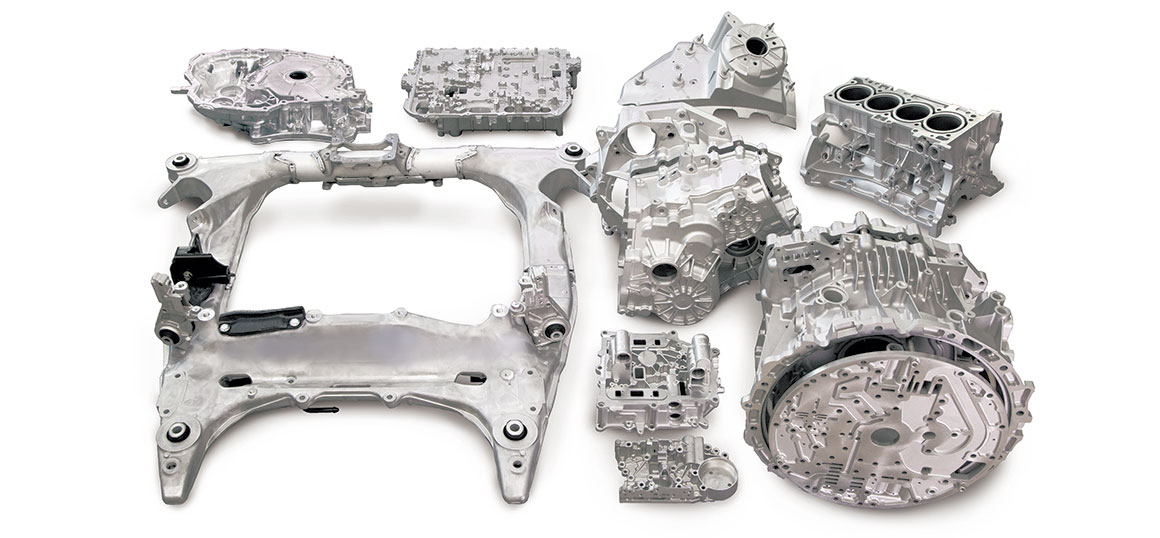Diecasting in Malaysia: Precision, Innovation, and Business Progress
Diecasting is a basic production process that plays an essential function in the production of high-precision steel parts throughout various markets. In Malaysia, the diecasting sector has been expanding gradually, sustained by the country's solid production field and enhancing need for premium, long lasting components. Diecasting is a technique where molten metal is infused into a mold under high stress, which allows for the manufacturing of intricate shapes with a high level of accuracy and smooth surface coatings. With a focus on effectiveness, top quality, and cost-effectiveness, Malaysia's diecasting industry has come to be a vital part of the worldwide supply chain for industries like automotive, aerospace, and electronics.  The diecasting sector in Malaysia has experienced substantial development over the previous few decades, driven by enhancing demand from neighborhood and worldwide markets. As Malaysia remains to develop as a regional production center, the need for high-quality, exact elements has actually climbed. Diecasting is particularly valued in the automobile sector, where suppliers call for high-performance parts with remarkable resilience. The rapid development of the automotive industry in Malaysia has resulted in a surge in demand for diecast parts, such as engine components, chassis components, and interior aspects. Furthermore, the increase in consumer electronic devices, particularly in smartphones, computer systems, and home appliances, has actually even more sustained the need for diecast components, making sure the proceeded importance of this production process in Malaysia's economy. The benefits of diecasting are many, and they make the procedure particularly appealing for mass production of elements. Among the primary benefits is the capacity to generate detailed shapes with high accuracy. This is especially helpful for industries like auto and aerospace, where parts have to meet rigorous performance standards. Diecast components are usually strong, lightweight, and immune to wear, making them excellent for applications that require toughness and integrity. The procedure additionally reduces the demand for added machining, as diecast parts commonly appear of the mold with a smooth surface coating and limited tolerances. This performance reduces production time and prices, which is very helpful in markets that need to produce large quantities of parts swiftly and cost-effectively. In Malaysia, the diecasting market has actually expanded its capabilities by taking on innovative technologies and methods. Automation and robotics are significantly being incorporated right into the diecasting process, enhancing precision and lowering the threat of human mistake. Automated systems are made use of to handle the injection of liquified steel, handle mold cycles, and conduct top quality inspections, causing faster manufacturing times and more consistent outcomes. Additionally, Malaysia's diecasting industry has accepted the use of innovative materials such as light weight aluminum and magnesium alloys, which use premium strength and sturdiness while being light-weight. These materials are particularly prominent in the automotive and aerospace industries, where lowering weight is crucial to enhancing fuel performance and performance. The fostering of these advanced modern technologies makes sure that Malaysia's diecasting field continues to be competitive on the international phase. To find new information please visit Senadiecasting
The diecasting sector in Malaysia has experienced substantial development over the previous few decades, driven by enhancing demand from neighborhood and worldwide markets. As Malaysia remains to develop as a regional production center, the need for high-quality, exact elements has actually climbed. Diecasting is particularly valued in the automobile sector, where suppliers call for high-performance parts with remarkable resilience. The rapid development of the automotive industry in Malaysia has resulted in a surge in demand for diecast parts, such as engine components, chassis components, and interior aspects. Furthermore, the increase in consumer electronic devices, particularly in smartphones, computer systems, and home appliances, has actually even more sustained the need for diecast components, making sure the proceeded importance of this production process in Malaysia's economy. The benefits of diecasting are many, and they make the procedure particularly appealing for mass production of elements. Among the primary benefits is the capacity to generate detailed shapes with high accuracy. This is especially helpful for industries like auto and aerospace, where parts have to meet rigorous performance standards. Diecast components are usually strong, lightweight, and immune to wear, making them excellent for applications that require toughness and integrity. The procedure additionally reduces the demand for added machining, as diecast parts commonly appear of the mold with a smooth surface coating and limited tolerances. This performance reduces production time and prices, which is very helpful in markets that need to produce large quantities of parts swiftly and cost-effectively. In Malaysia, the diecasting market has actually expanded its capabilities by taking on innovative technologies and methods. Automation and robotics are significantly being incorporated right into the diecasting process, enhancing precision and lowering the threat of human mistake. Automated systems are made use of to handle the injection of liquified steel, handle mold cycles, and conduct top quality inspections, causing faster manufacturing times and more consistent outcomes. Additionally, Malaysia's diecasting industry has accepted the use of innovative materials such as light weight aluminum and magnesium alloys, which use premium strength and sturdiness while being light-weight. These materials are particularly prominent in the automotive and aerospace industries, where lowering weight is crucial to enhancing fuel performance and performance. The fostering of these advanced modern technologies makes sure that Malaysia's diecasting field continues to be competitive on the international phase. To find new information please visit Senadiecasting  The products made use of in the diecasting procedure likewise contribute to its widespread appeal in Malaysia. Aluminum, zinc, and magnesium are generally used in diecasting due to the fact that they are lightweight yet strong, making them perfect for sectors that need sturdy however light parts. Aluminum diecasting, specifically, has gained extensive use in the automotive and electronics industries due to the material's outstanding rust resistance, reduced thickness, and thermal conductivity. The versatility of diecasting allows producers to work with various alloys, which better boosts the versatility of the process. Furthermore, diecasting helps reduce product waste by using the molten metal successfully, guaranteeing that the final product is produced at a reasonably low cost. This combination of affordability and convenience has actually made diecasting a go-to option for producers in Malaysia and past. Regardless of the lots of benefits of diecasting, the industry also encounters several obstacles. Among the key concerns is the environmental effect of the procedure. Making use of molten steels and the high power demands of diecasting can result in significant energy consumption and exhausts, which can add to the carbon impact of suppliers. As sustainability comes to be a significantly vital consideration in global production, there is growing pressure on diecasting firms in Malaysia to embrace greener techniques. This has brought about the growth of even more energy-efficient machines, along with renovations in material recycling and waste decrease. By buying these innovations and taking on more sustainable practices, the Malaysian diecasting sector can remain to expand while decreasing its environmental impact.
The products made use of in the diecasting procedure likewise contribute to its widespread appeal in Malaysia. Aluminum, zinc, and magnesium are generally used in diecasting due to the fact that they are lightweight yet strong, making them perfect for sectors that need sturdy however light parts. Aluminum diecasting, specifically, has gained extensive use in the automotive and electronics industries due to the material's outstanding rust resistance, reduced thickness, and thermal conductivity. The versatility of diecasting allows producers to work with various alloys, which better boosts the versatility of the process. Furthermore, diecasting helps reduce product waste by using the molten metal successfully, guaranteeing that the final product is produced at a reasonably low cost. This combination of affordability and convenience has actually made diecasting a go-to option for producers in Malaysia and past. Regardless of the lots of benefits of diecasting, the industry also encounters several obstacles. Among the key concerns is the environmental effect of the procedure. Making use of molten steels and the high power demands of diecasting can result in significant energy consumption and exhausts, which can add to the carbon impact of suppliers. As sustainability comes to be a significantly vital consideration in global production, there is growing pressure on diecasting firms in Malaysia to embrace greener techniques. This has brought about the growth of even more energy-efficient machines, along with renovations in material recycling and waste decrease. By buying these innovations and taking on more sustainable practices, the Malaysian diecasting sector can remain to expand while decreasing its environmental impact.